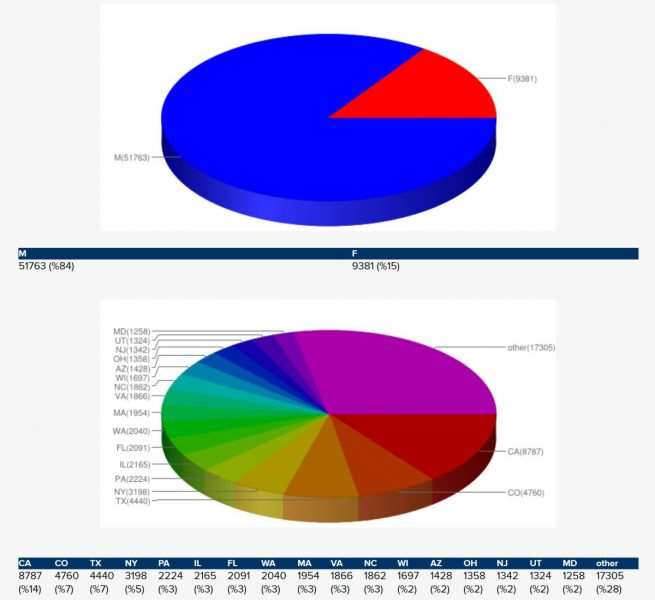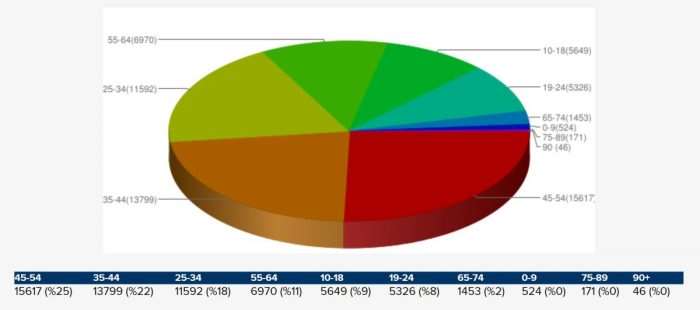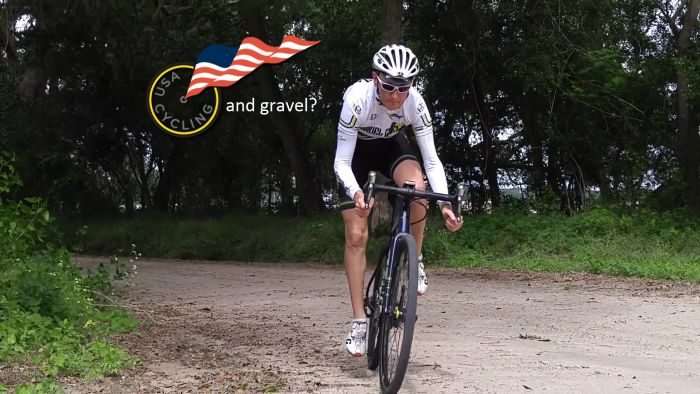If you caught our feature article earlier in the week – USA Cycling has its eye on Gravel, you would have read the email one of our readers sent directly to the CEO of USA Cycling – Derek Bouchard – and the Board of Directors. Mr Bouchard reached out to the individual who wrote that email, and had a 45 minute telephone conversation with him on December 7, 2016. That reader has shared his telephone conversation with us, but asked we keep his identity private. Thank you.
A conversation with Derek Bouchard
Mr. Bouchard contacted me to set up a phone call after receiving my email. We had a very pleasant and informative conversation. It will be interesting to see if it turns out to be constructive as well.
First, let me say that it was encouraging that he wanted to interact at all. He noted that he gets lots of email and correspondence that is critical of USAC. I learned that a thoughtful, even-tempered, and well informed email is what got his attention. So, note to self: Don’t send a rant, no matter how “right” I am. He is aware of the notion that USAC is perceived as a fun killer for gravel races. He wanted to know more about why.
Mr. Bouchard seemed genuinely interested in my perspective on gravel racing, and USAC’s involvement. I did not and do not claim to represent everyone engaging in the sport.
I presented the problem to Mr. Bouchard as having three major components: 1) culture, 2) perception, 3) trust. I suggested that the culture of the gravel scene is one that grew out of a response to the traditional USAC culture. If not a direct response to that culture, it is independently counter to that culture. I think gravel riders revel in the counterculture nature of their events. I noted the vast differences between the comradery and behavior between the typical gravel event and a road race. (Ever hear someone say “great ride” as they passed and dropped you in a road race? Not me, not in 40+ years of racing). I suggested I perceived the USAC mission to be one of identifying, supporting, and promoting elite racing cyclists. That is a mission that leads to a culture where participatory athletes, or the vast majority who will never make it to the elite level, may not be served by USAC. Furthermore, that culture can lead to unhealthy attitudes, behaviors, and outcomes for the sport. Many in the gravel community may further perceive that their involvement (and fees) are used to support the elite athlete programs, not those they are participating in themselves. Thus, the claims in public pronouncements are not believed or trusted. I suggested that “sometimes your behavior is so loud, I can’t hear what you are saying” meaning that all the tangible evidence still suggests they are looking for the next Tour de France winner, not helping us have fun.
He acknowledged that the historical culture of USAC was to promote elite athletes, and he wants to change that. I have no reason not to believe him, but I noted he would have a hard time selling that to the people I ride with.
He wanted to know what the perceived threats from USAC could be. I suggested that we perceive the importation of the USAC culture (points series, categories, championships, sponsorships for winning races, race payouts, “win at all cost”) to be the biggest threat. The second threat was over-regulation and killing the fun.
When asked what USAC offers that would offset those perceived risks, the answer was pretty unsatisfying. He elaborated upon the insurance USAC offers, and online registration. I gave him my perspective. Nearly all of my crashes and injuries have occurred in training or social rides… I can’t remember any in the last 20 years that occurred in a sanctioned event. I have insurance. To ride bikes without insurance is crazy. There are risks to promoters that I don’t fully understand. They may decide the USAC is good for that. Online registration with USAC is trivial and redundant to other existing services. So, shocking little value was offered. USAC needs to articulate and define what “promoting cycling” means. That is the big problem facing USAC. I see little value to them “taking over” gravel and gran fondo events, and serious risks.
So what did I take away from the conversation? USAC is struggling with declining participation, licensing, and money. I think this is forcing them to try to “broaden their portfolio”. I think they are struggling to define their mission, that is now very poorly articulated, and even more poorly operationalized. I offered that USAC first needed to decide if their mission should focus on fixing the competitive side of their operation. I have no problems with them being an agency that is about elite cycling competition, and I support that. I did not get any convincing argument about why the gravel community should be part of that plan. They are separate, and gravel is growing without USAC. USAC has a huge battle to convince gravel cyclists they have something to offer and that what they offer outweighs the risks. Furthermore, they need to be educated about the differences in culture, and the nuances of how poorly articulated missions can ruin that. It will be a hard job.
Interesting facts from USA Cycling’s website:
VISION
The vision of USA Cycling is to make the United States of America the most successful country in the world of competitive cycling.MISSION
The mission of USA Cycling is to achieve sustained success in international cycling competition and grow competitive cycling in America while delivering an exceptional customer experience.
Gender, Demographics and Age Groups


Approximately 60% of USA cycling members are in one of the Masters categories. Only 26% are in the prime racing age. Thus, USAC’s mission is built on the back of Master’s license holders. One could say it is astonishing how little USAC caters to or supports their largest member group(s)?



No big surprise and USAC may fail to exist in the next five years. Road racing is about all they have left, IMHO it really is for an elitist group, as I still hold a USAC license and race a few sanctioned events. In the 90s there were a ton of junior racers, which is almost non-existent now, and many of those guys who are now in their 40s have ventured outside sanctioned racing over to endurance MTB and gravel events. Many of the showcase MTB events have completely distanced themselves from USAC because there really is nothing they offer. The insurance aspect, even at the local level is much more affordable, so race promoters can host races and series on their own terms. Our local club hosts an entire series of both gravel and MTB races with a very strong backing from sponsors and participants. Grassroots organizations like these have no interest in a governing body.
Clearly USAC needs to revamp their mission and vision first and foremost, and then refocus their programs around that. I suggest a mission of “to grow and support all levels of amateur bicycle racing”. Get more people racing period, and elite success will come from that. Treat the grassroots and masters as the prime customers to serve, instead of as a cash cow to fund the elites. I sure wouldn’t bet on that happening though.
I for one welcome the USAC to gravel racing. The value would be structure and validation. Gravel isn’t some new movement that has shown amazing growth. It’s been here for 40 years.
We called it something else. “Touring” “trekking” “adventure” “gravel” a rose by another name sorta thing.
If the USAC can reduce barriers for event promotion then sign me up. It will provoke me to host an event.
The USAC is first a business and DBH is at the helm. The objective is to make money. When DBH came on board the USAC was bleeding cash. He has taken the steps to reverse that. There are naturally going to be less masters at races. The amount of generation X riders is much smaller compared to boomers. That means the customer base is shrinking. If he continued to market to the boomers the USAC would dwindle down to very little. His desire to to market to gen x and millennials is what might actually save the USAC.
His track record is a positive one. His actions speak loudly. Give him and the USAC an opportunity to show us their benefits in gravel.
Please remember that the USAC isn’t required by anyone to host a gravel event, they are simply an additional option.
Thanks for covering this important topic.
The thing is that the relatively inexpensive promoter insurance USAC provides is really valuable. It’s honestly the only insurance I can find for my events that expressly covers the promoter with legal defense against all lawsuits related to race injuries. You can buy the fondo (defined by USAC as a timed, open event) insurance for any gravel race that does not offer prize money and the riders still don’t have to have licenses to race. That’s just huge and, IMHO, a very valuable service provided for USAC.
Peter – my negative comments were from a participants point of view. I plead ignorance as far as the “relatively inexpensive” insurance availability for event promoters. If what you say is correct, and in fact USAC is providing no-strings attached insurance, then this indeed would be a valuable contribution. But, the article in VeloNews and the quotes from Bouchard- Hall, seem to indicate a more ambitious participant licensing agenda. If so, I wouldn’t be surprised if their future insurance offering may come with a requirement for participant licensing, use of certified USAC officials etc, etc, etc. I would note that in Europe, where the Gran Fondo tradition started many years ago and is thriving, the events are sponsored by the European Bicycle Touring organization – not be the UCI. These events draw thousands of unlicensed participants each year; and are the model for the nacent Gran Fondo growth in the North America. My guess is that as our sport grows at the rate it has, other insurance companies will see the opportunity to sell products to promoters. After all, USAC isn’t an insurance company. They buy insurance from someone.
I confess to being one of the “ranters”. As a USAC Masters license holder for many years, and having some experience with USAC officialdom, I’m disgusted with the system and alarmed by their attempts to infiltrate grass roots amateur cycling. One factor that hasn’t been mentioned is the detrimental effect of international sports. More specifically, the Olympic Games, the IOC, the UCI, and USOC. USAC is specifically missioned and funded and sanctioned by these international organizations and the USOC to develop USA’s cycling team for Olympic and World Championships. This relationship means that the USAC has an inherent conflict of interest as far as true amateur cycling is concerned. As a Masters competitive cyclist for many years, I was acutely aware of the unfairness of this system. While we Masters cyclists were the majority of the “dues paying” membership, we got the short end of benefits. Nothing has changed.
Spot on! There is no reason for USAC or any federation to be involved with gravel or any dirt racing. I feel guilty when i enter a mt bike race and then realize i need to renew my license that had been dormant for years. Many mt bike and gravel type races exist very well without USACs “assistance.” And yes, their only desire appears to be to capture money involved in this fairly new venue since road racing appears to be on the decline.
Providing insurance is different than trying to tap into a market and influence it. While more options for promoters are good, the risks to culture are prominent. Road and cyclocross promoters not familiar with the culture tend to put on lower quality gravel events in my opinion, starting with course designs that could be so much better, because they “aren’t interested in making the most interesting course but in having an event and capturing some of the market,” exact words from a promoter I know. Lowering barriers to putting on an event is a good thing, but only if they enable a promoter to put on a quality event. Yes, I can vote with my wallet and not come back the next year but growing something too quickly often decreases quality. USAC should focus on enabling promoters to put on events that every participant loves including the non competitive.
I don’t have to pay an additional $10 at each 5k or 10K I run to USA Track and Field. While I acknowledge the safety and insurance risks are different, they have similar missions in developing high level athletes for their sports. What a lot of USAC racers don’t understand is there are scores of CAT 3-4 level riders who don’t race the typical events because they don’t like the culture. Those people are more interested in an event like a local running race where they compete against themselves but value the experience, comradery and scenery. Also, self sufficiency, navigation and the psychology needed to do well on many gravel events are skills alongside fitness and power, and regulating them obsolete takes away the experience and skills that many value.
Do I want to place well? Yes, but my gravel experiences have been that if a group of 8 people – all strangers who didn’t know each other prior – in places 4-12 are riding together for the last 40 miles, they don’t outsprint each other at the line. I like that. I could vote with my wallet and not enter a USAC event. Alternatively, USAC can listen to the scores of athletic cyclists around the nation that don’t participate in their events and offer products and services that are more inclusive. There is no reason that hasn’t already been done for decades, hence the skepticism. They aren’t yet demonstrating that is their intent, so rather than avid gravel riders having an open mind, USAC needs to have open ears.
I think Banger’s comment should be the open letter to DB-Hall. Almost perfectly reflects my feelings on the core issues here.
I am a cyclist who has decided to join USA Cycling for my Category 5 license. I live in a rural area where most of my rides are solo events. I used to live in areas with active and lively group rides. I miss the competitive social nature of the sport. Currently, my time is divided between road cycling and gravel on the local farm roads. It is a four hour drive and the cost of lodging for me to participate in any cycling event weather road or gravel. And so you can imagine, 10 mass start events to move up a Category will be a costly endeavor. Road races and gravel would be my preferred races. However, I will need to participate in criterions to accumulate enough races to accomplish 10 in a year. It is interesting to me to read all of the negative feedback toward USA Cycling. However, I see this as a plus because gravel and gran fondo events would add to the variety of events that I could train for to gain credits for my racing license.
John – I don’t know if you are a Masters racer (technically I think the age cut off for Masters is 30 or 35) . If you are, you have encountered one of the annoying quirks that make some of the USAC rules crazy. A lot of older riders come from other sports and start cycling at age 30+, or for that matter, age 40+. It is ridiculous to make someone like that ride 10 races in Cat 5 (the Crash and Burn category) so that they can ride in age group Masters events which have smaller fields, and much safer (saner!) riders. The rule is supposed to be for safety — but whose safety is USAC worried about? In my case, when I returned to bike racing in my 40’s, I was grandfathered in to a Cat III license base on my pre- USAC history of representing the US at the Amateur World Championships in Salo Italy in 1962. The owner of my local bike shop wanted me on his team, and knew the district rep., who issued me a Cat III license. A good example of cronyism.
Bobk, I am a Master’s “age” racer. Plan to do my first Cat 5 Road Race (one day license) next week. However, I am very interested in the gravel race scene because less complication. I am also considering cyclo cross. If I have 3 or 4 events per year, then it adds purpose to my rides and ‘training”. I get what you say about safety and “Cat 5 (crash and burn). I have to work on Mondays because that is where I make my living. I don’t want to do Crits because they mix in the 20 year old (high risk, nothing to lose, take out the group cutting the inside corner) racer. I’ve been cycling for a very long time, I’m one of the strong guys (or at least have high level of cycling fitness). I can hang with the faster riders in urban areas and they contribute this to me fighting the wind solo. All this aside, my motivation is also a social one. I want to connect with other bazaar individuals who are cycling fanatics and experience the sensations associated with sport.
I have been racing bicycles since 1966 and have seen the “feds” go through multiple renditions of stupidity. Letting “them” get control of gravel riding and racing will simply kill it. First, everyone will have to have a stupid license. Then (the riders) will have to put up with CRAPPY race officials. Finally, when the “feds” have almost killed the gravel scene, small regional INDEPENDENT organizations will try to save it…..
To the “feds”: stay out of gravel and work on making what you are currently doing WORK. Start with the personalities of your officials. Try being nice…..
I have no clue what is going on USA Cycling or care what is going on there. I am coming to gravel riding/racing after being hit by a drunk and his truck back in Jan. What I have seen so far and read about gravel riding so far reminds me so much of rando riding. A bunch of guys/gals get together and go out on a course. If 5-10 of you ride together on the course and help each other out there is no sprint to the finish line to see who is first. If you find somebody in trouble out on the course you help them make it to the next control/aid station. I can’t wait to meet/ride with lots of you out on different courses and terrains.